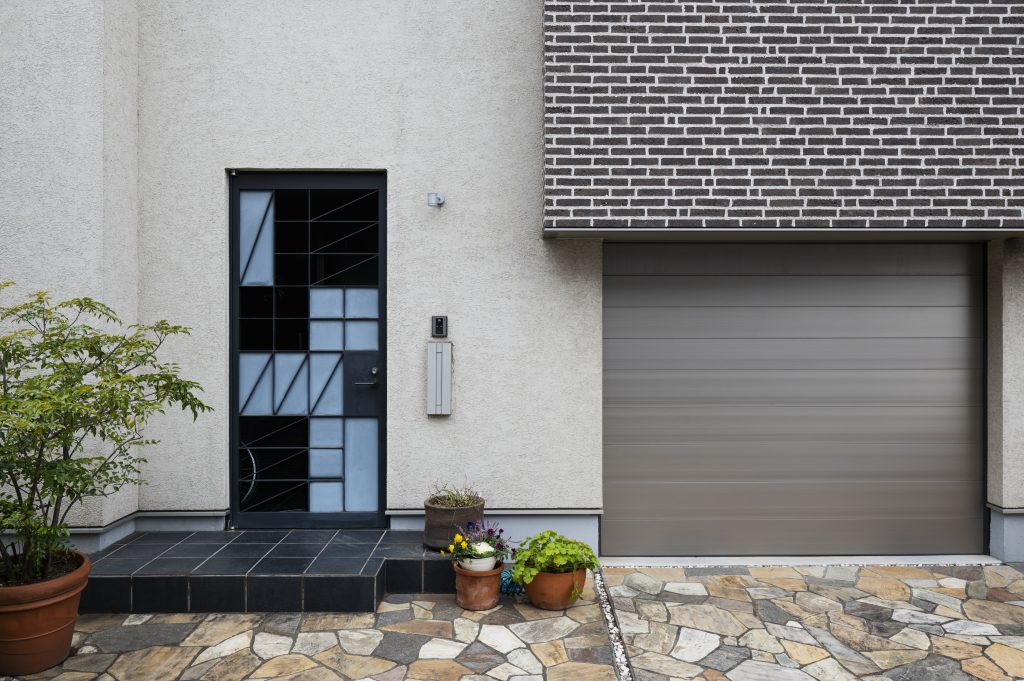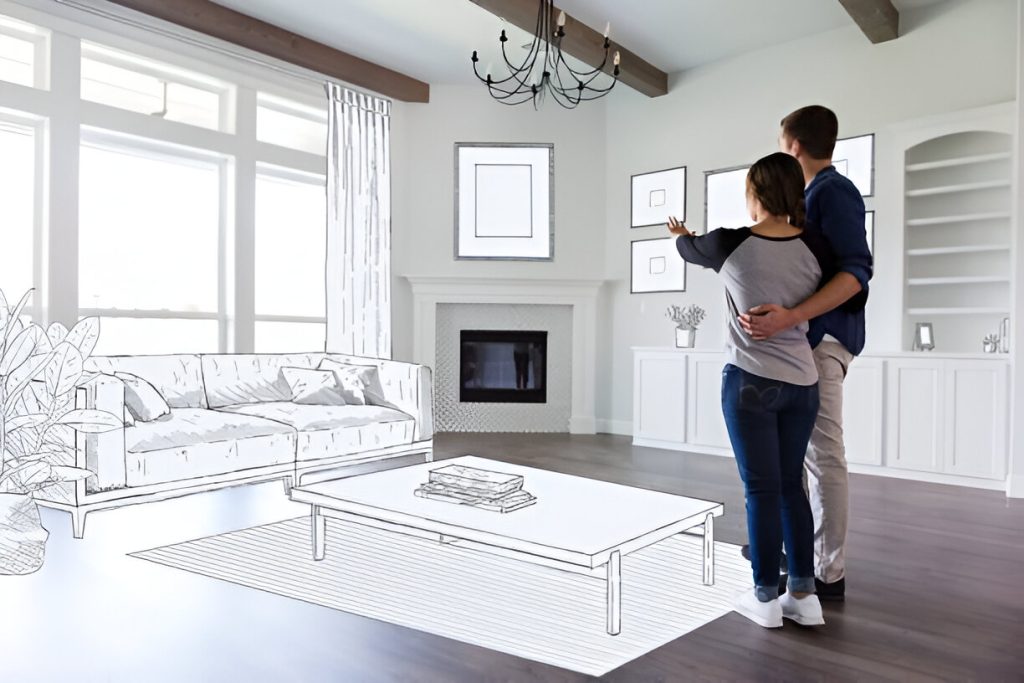Are you at a crossroads, trying to decide between the sleekness of metal or the cost-effectiveness of vinyl for your garage door? Well, hold onto your hat because this discussion is about to shed some light on the matter. We’ll dive into the pros and cons of both options, navigating through the ins and outs of durability, weather resistance, maintenance, insulation, and appearance. By the end, you’ll have all the information you need to make an informed decision and find the perfect fit for your home. So, buckle up and get ready to uncover the truth about whether garage doors are metal or vinyl.
Metal Vs Vinyl: Which Is Better?
When deciding between metal and vinyl garage doors, it is important to consider the specific needs and preferences of your home, as both options offer unique advantages and considerations. Let’s compare metal and vinyl in terms of insulation, cost, durability, customization options, and weather resistance.
Insulation comparison: Vinyl doors can be packed with highly insulating materials, rivaling the insulation of wood doors. For example, the Wayne Dalton Model 8700 with polyurethane insulation has an impressive R-value of 11.75. On the other hand, metal doors lack insulation unless dedicated installation is done.
Cost comparison: Vinyl doors are generally more expensive than steel doors but are more cost-effective in the long run due to their resistance to rust and damage, making them a better investment. While metal doors are initially cheaper, they may require more maintenance and replacement costs over time.
Durability comparison: Vinyl doors are sturdier than steel doors, highly resistant to damage, scratches, and scuffs. They are close to indestructible, making them ideal for homes with kids. However, vinyl doors can become brittle and crack in very cold temperatures. Metal doors, although prone to dents, are resistant to splitting, splintering, and rust.
Customization options: Both metal and vinyl doors offer numerous style options, including panel designs and window options. However, vinyl doors have limited color choices, mainly white and beige shades, while metal doors can be easily customized and painted to suit your personal aesthetic preferences.
Weather resistance: Vinyl doors are rust-proof and highly resistant to salt air, wind, and sand. They will not warp or rot in humid conditions. Metal doors, on the other hand, are not rust-proof but can withstand extreme weather conditions.
Pros and Cons of Metal Garage Doors
Metal garage doors have their own set of advantages and disadvantages that should be considered when making a decision for your home. Here is a comparison of the pros and cons of metal garage doors:
| Pros | Cons |
|---|---|
| Durability and strength | Higher initial cost |
| Wide range of customization options | Limited insulation properties |
| Can withstand harsh weather conditions | Less color options |
| Enhanced security features | Prone to dents and scratches |
Metal garage doors are known for their durability and strength, making them a long-lasting option for your home. They can withstand harsh weather conditions and provide enhanced security features to protect your belongings. Additionally, metal doors offer a wide range of customization options, allowing you to choose a design that complements your home’s aesthetic.
However, metal garage doors do have some drawbacks. They can be more expensive compared to other materials, such as vinyl. Additionally, metal doors have limited insulation properties, which means they may not provide the same level of energy efficiency as other options. They also have a limited color range, mainly consisting of neutral shades. Lastly, metal doors are prone to dents and scratches, which can affect their appearance over time.
When considering metal garage doors, it is important to weigh the pros and cons based on your specific needs and preferences. Take into account factors such as cost, durability, insulation properties, customization options, and security features to make an informed decision for your home.
Pros and Cons of Vinyl Garage Doors
After considering the pros and cons of metal garage doors, it is time to explore the advantages and disadvantages of vinyl garage doors. When it comes to durability, vinyl garage doors are known to be sturdier than steel doors. They are highly resistant to damage, scratches, and scuffs, and their one-color design makes blemishes tough to spot. Vinyl doors are close to indestructible, making them ideal for homes with children. However, it is worth noting that in extremely cold temperatures, vinyl doors can become brittle and crack.
In terms of weather resistance, vinyl doors have an advantage over steel doors as they are rust-proof. They also do not warp or rot in humid conditions, unlike wood doors. Vinyl doors are highly resistant to salt air, wind, and sand, and can handle extreme weather conditions. Additionally, they have a UV-resistant finish that prevents color fading due to sun exposure.
When it comes to maintenance, vinyl doors require little upkeep compared to wood doors. Sporadic washing with soap and water is sufficient, and there is no need for repainting. However, refinishing with vinyl specialty paint is possible, although it is not recommended as it nullifies the warranty. Both vinyl and steel doors require minimal maintenance overall.
In terms of insulation, vinyl doors can be packed with highly insulating materials, rivaling the insulation of wood doors. For example, the Wayne Dalton Model 8700 with polyurethane insulation has an impressive R-value of 11.75. However, it is important to note that vinyl itself is not an insulating material like wood, but insulation can be added to vinyl doors for better insulation properties.
When it comes to appearance and cost, vinyl doors have a clean, sleek look similar to steel doors. They offer various customization options, including panel designs and window options. However, they do have limited color options, mainly consisting of white and beige shades. This may not be suitable for those seeking a bolder color choice. Additionally, the faux-wood grain pattern on vinyl doors may not look as realistic as on other materials. In terms of cost, vinyl doors are generally more affordable than wood doors but tend to be more expensive than steel doors. However, they are resistant to rust and damage, making them a better long-term investment. While the initial cost may be higher, potential savings in maintenance and replacement costs make vinyl doors a cost-effective option.
Factors to Consider When Choosing Between Metal and Vinyl
To make an informed decision between metal and vinyl garage doors, there are several important factors you should consider:
- Metal vs Vinyl Cost:
- Metal doors are generally more affordable than vinyl doors.
- However, vinyl doors may provide better long-term value due to their resistance to rust and damage.
- While the initial cost of vinyl doors may be higher, potential savings in maintenance and replacement costs should be considered.
- Weather Resistance Comparison:
- Both metal and vinyl doors offer excellent weather resistance.
- Metal doors are rust-proof and can withstand extreme weather conditions.
- Vinyl doors, on the other hand, are resistant to warping, rot, and salt air.
- Additionally, vinyl doors have a UV-resistant finish to prevent color fading due to sun exposure.
- Insulation Properties Analysis:
- Vinyl doors can be packed with highly insulating materials, rivaling the insulation of wood doors.
- Metal doors, however, lack insulation without dedicated installation.
- If insulation is a priority, vinyl doors can be a better option as insulation can be added to enhance their properties.
- Maintenance Requirements Comparison:
- Both vinyl and metal doors require minimal upkeep.
- Vinyl doors require sporadic washing with soap and water, while metal doors may require occasional touch-ups to prevent rust.
- Refinishing vinyl doors is possible but not recommended as it nullifies the warranty.
- Aesthetic Customization Options:
- Both metal and vinyl doors offer numerous style options.
- Vinyl doors can be customized with different panel designs and window options.
- However, vinyl doors have limited color options, mainly white and beige shades, while metal doors can be easily customized and painted to match your desired aesthetic.
Considering these factors, you can now make an informed decision between metal and vinyl garage doors based on your budget, climate conditions, desired level of insulation, maintenance preferences, and aesthetic customization options.
Maintenance Tips for Metal Garage Doors
When it comes to maintaining your garage door, it is important to be aware of the specific maintenance tips for metal garage doors. Proper cleaning is essential to prevent the buildup of dirt and debris on the surface of the door. Use a mild detergent mixed with water to wash the door, and avoid using abrasive cleaners that can damage the metal. Regularly inspect the door for any signs of rust and apply a rust-resistant primer and paint to prevent further corrosion. In addition to cleaning, it is crucial to maintain the hardware of the metal garage door. Lubricate all moving parts, such as hinges, springs, and rollers, with a silicone-based lubricant to ensure smooth and quiet operation. If you encounter any issues with your metal garage door, such as difficulty opening or closing, strange noises, or misalignment, it is important to troubleshoot the problem promptly. Check for loose or damaged hardware, adjust the track alignment, and consult a professional if necessary. By following these maintenance tips, you can keep your metal garage door in optimal condition and prolong its lifespan.
Maintenance Tips for Vinyl Garage Doors
Maintaining vinyl garage doors is essential for their longevity and optimal performance. Proper vinyl garage door care will ensure that your door remains in good condition and functions smoothly. Here are some tips for vinyl door maintenance:
- Regular cleaning: Wash your vinyl garage door periodically with a mild detergent and water. Use a soft cloth or sponge to remove dirt, debris, and stains. Avoid using abrasive cleaners or harsh chemicals that can damage the vinyl surface.
- Lubrication: Apply a silicone-based lubricant to the moving parts of your vinyl garage door, such as hinges, rollers, and tracks. This will reduce friction and prevent squeaking or sticking.
- Inspect for damage: Regularly inspect your vinyl garage door for any signs of damage, such as cracks, dents, or warping. Repair or replace damaged sections to prevent further issues.
- Protect from extreme temperatures: Vinyl garage doors are resistant to temperature extremes, but very cold temperatures can make the material brittle and prone to cracking. Consider adding insulation to your vinyl door for better thermal efficiency.
- Avoid direct sunlight: Vinyl is UV-resistant, but prolonged exposure to direct sunlight can fade the color of your garage door over time. Consider using a UV-protective coating or park your vehicle in the shade to minimize sun exposure.
Common Problems and Solutions for Metal and Vinyl Garage Doors
If you’re experiencing common problems with your metal or vinyl garage doors, there are simple solutions to address them and keep your doors functioning properly. When it comes to cost comparison, vinyl garage doors are generally more affordable than metal doors. However, metal doors are known for their durability and security features. In terms of insulation properties, vinyl doors can be packed with highly insulating materials, rivaling the insulation of wood doors. On the other hand, metal doors may require dedicated installation to improve their insulation. When considering durability factors, vinyl doors are sturdier than metal doors and are highly resistant to damage, scratches, and scuffs. Metal doors, while strong, can dent easily. Aesthetic considerations play a role as well, with vinyl doors offering numerous style options and a clean, sleek look. Metal doors can be customized and painted easily. In conclusion, both metal and vinyl garage doors have their advantages and it ultimately comes down to personal preference and specific needs. By addressing common problems and ensuring proper maintenance, you can extend the lifespan and functionality of your garage doors.




